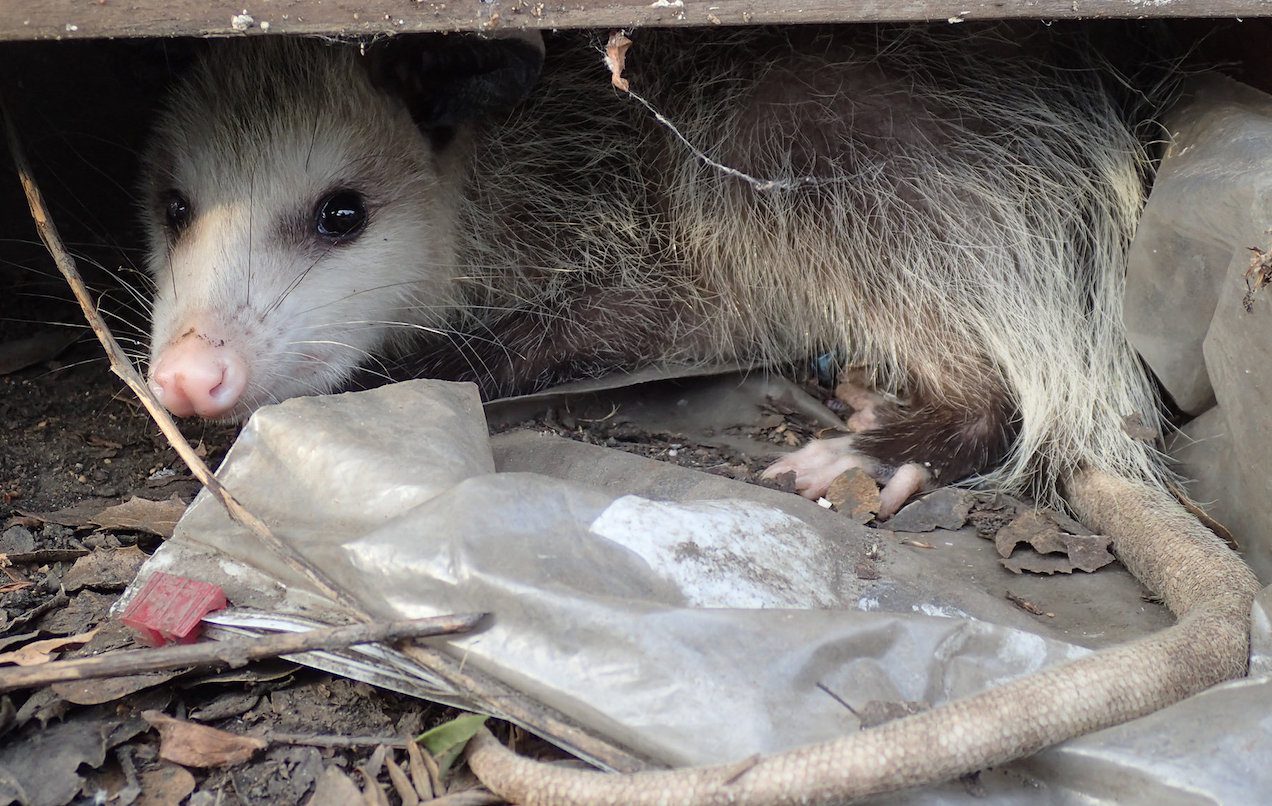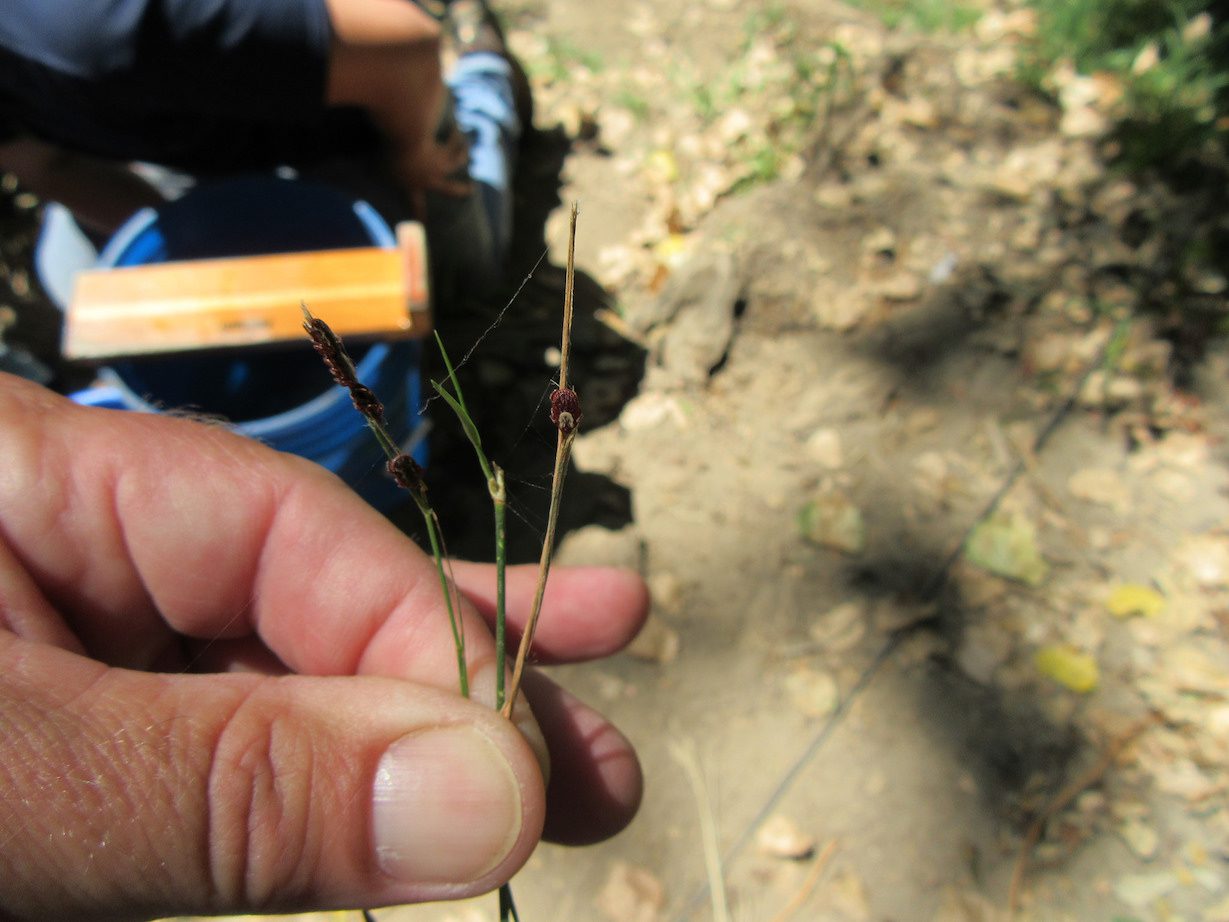Wednesday October 4, 2017
When staff at our office in Oakdale arrived one morning to find a dead chicken in our coop, we wondered who the culprit could be. The mystery was solved the following week when we discovered an opossum (Didelphis virginiana) that had made a nest under our woodpile. Opossums often get a bad rap as mean, ugly nuisances for committing acts such as these, but they can also help us out in unexpected ways. There are many species of opossum in the world, but only one in the United States. Opossums are nocturnal scavengers and will eat almost anything, from fruit to roadkill to chickens to ticks. Yes, they eat ticks, like the ones pictured below, that try to feed on them! This behavior has proven to reduce the incidence of Lyme disease (Keesing et al. 2009), which is transmitted by blacklegged ticks (Ixodes spp.).
Other interesting opossum behaviors include playing dead when threatened and being immune to rattlesnake venom (Werner and Vick 1976). Opossums can also have up to 40 babies per year! However, most don’t survive their first year and adults only have a lifespan of four years. Opossums are known to harbor certain diseases that can be transmitted to humans, such as leptospirosis and toxoplasmosis, and can also carry fleas and diseases that infect pets, so it’s best not to leave any pet food outside at night, which may attract them to your house. While opossums aren’t native to California (and are thought to have been introduced around the turn of the century), they are now widespread and here to stay. So, if you have a trouble-making opossum on your hands, try checking out the Statewide Integrated Pest Management System website for suggestions, or contact your local wildlife rehabilitation center.


